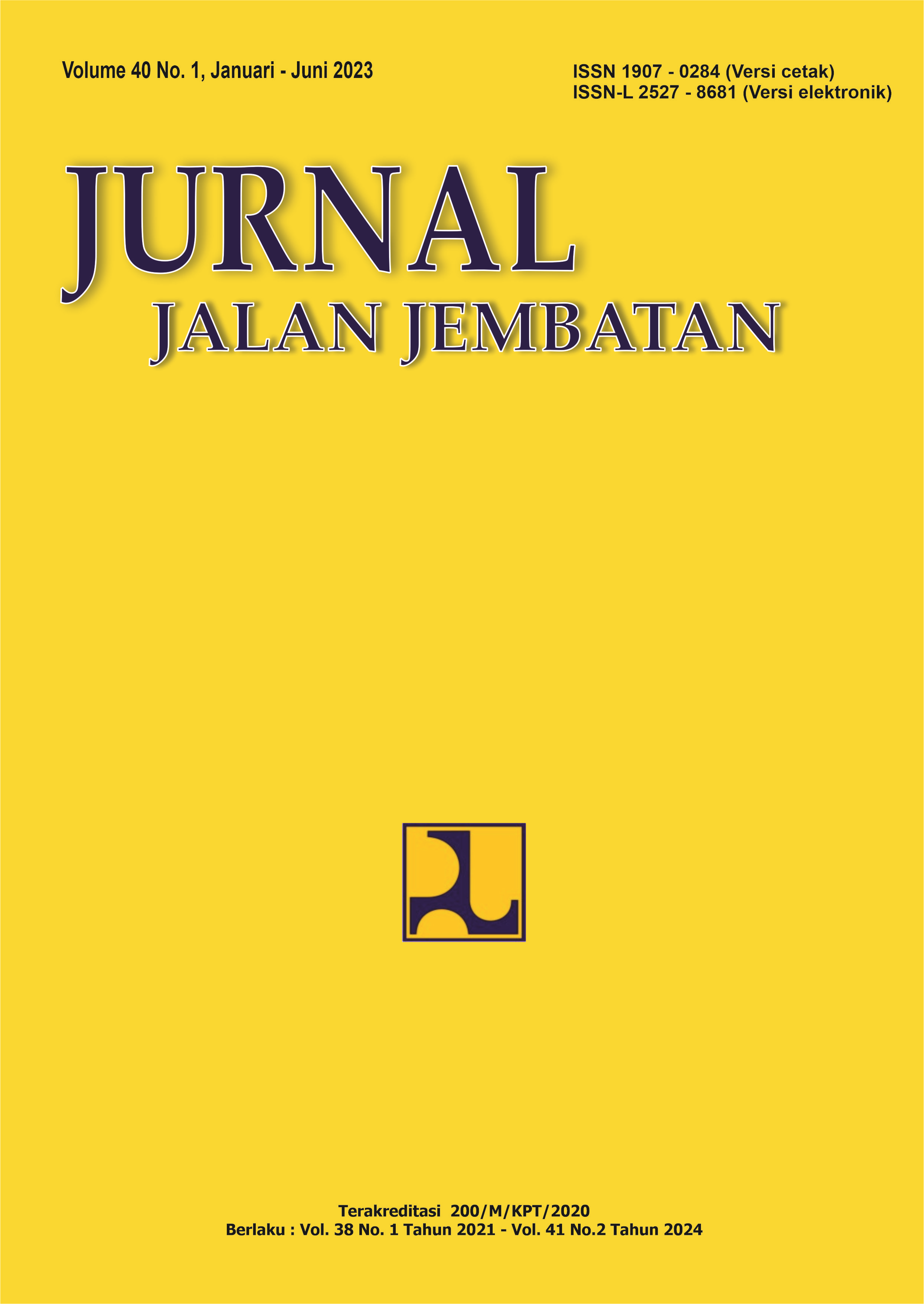THE THE EFFECT OF DIFFERENT QUALITY OF CERAMIC WASTE ON THE MECHANICAL PROPERTIES OF PAVING BLOCK
Main Article Content
Abstract
This study aims to determine the effect of ceramic waste differences (types BIa and BIIb) as substitute for sand by 15% on the mechanical properties of paving block and their utilization in construction industry. Two types of samples were used: mortar (50x50x50 mm) and paving block (210x110x60 mm). The mortar sample variations were 25% BIa and 75% BIIb (M1), 50% BIa and 50% BIIb (M2), 75% BIa and 25% BIIb (M3), 100% BIa (M4) and 100% BIIb (M5). The paving block sample variations were 50% BIa and 50% BIIb (BB1), 75% BIa and 25% BIIb (BB2), and 100% BIa (BB3). Mechanical properties were analyzed according to the compressive strength test for both samples and also water absorption for paving block samples. The difference in the quality of ceramic waste affects the compressive strength, which was confirmed by compressive strength test and ANOVA test. The M4 had the highest compressive strength (16 MPa) for mortar sample, while BB3 had the highest compressive strength (25 MPa) for paving block sample. However, based on BB2 and BB3 compressive strength and absorption tests, the two samples can be categorized into the same quality (B quality) based on SNI 03-0691-1996. Thus, BB2 variation is recommended to be applied as material for making parking lots. This is due to the number of BIa-type ceramics being relatively less when compared to BIIb. For pedestrian paths, variation of BB1 is proposed.
Article Details
Authors who publish in this journal agree to the following terms:
-
Authors retain copyright and grant the journal the right of first publication with the work simultaneously licensed under a Creative Commons Attribution License, which allows others to share the work with acknowledgment of the work's authorship and initial publication in this journal.
-
Authors may enter into additional contractual arrangements for the non-exclusive distribution of the journal's published version of the work (e.g., post it to an institutional repository or publish it in a book), with acknowledgment of its initial publication in this journal.
-
Authors are permitted and encouraged to post their work online (e.g., in institutional repositories or on their website) as it can lead to productive exchanges, as well as earlier and greater citation of the published work.
Each submitted manuscript must be accompanied by a "Manuscript Originality Statement" and a "Copyright Transfer Statement".

